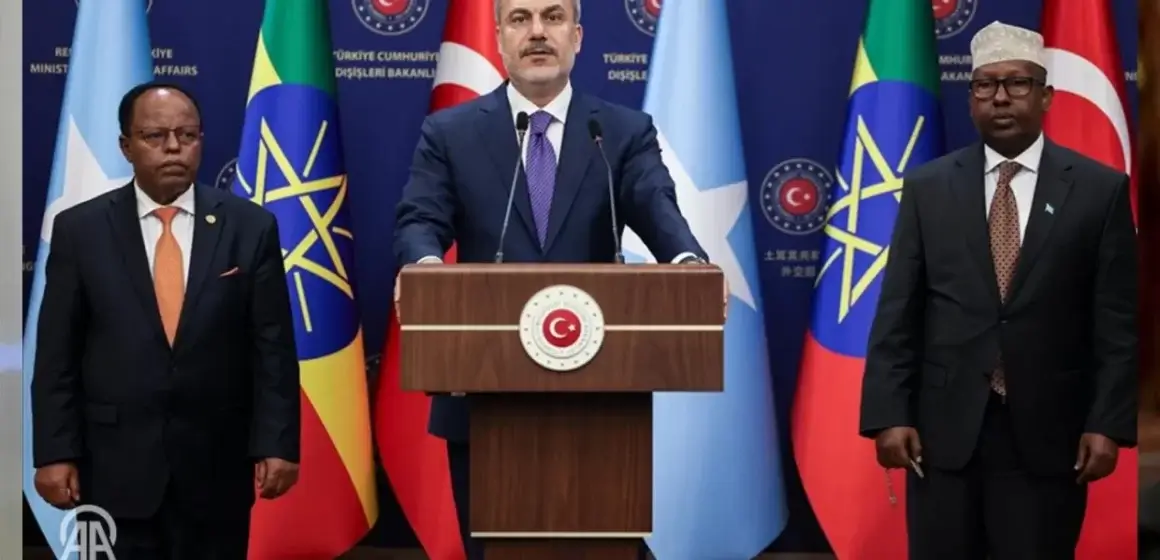|
LISTEN TO THIS THE AFRICANA VOICE ARTICLE NOW
Getting your Trinity Audio player ready...
|
Turkey recently stepped in to mediate the ongoing dispute between Ethiopia and Somalia over a controversial maritime agreement with Somaliland.
The friction began in January 2024 when landlocked Ethiopia signed a deal with Somaliland, a self-declared republic that broke away from Somalia in 1991. The agreement granted Ethiopia access to a section of Somaliland’s coastline, reportedly in exchange for potential recognition of Somaliland’s independence.
Somalia vehemently rejected the deal, viewing it as an infringement on its territorial integrity. The lack of transparency surrounding the agreement’s details further inflamed tensions. The African Union (AU) and the US swiftly called for all parties to de-escalate in late January 2024.
To address the tensions and resolve the conflict, Turkey, which enjoys close relations with both Somalia and Ethiopia, offered to host talks between the two nations’ representatives. Ethiopian and Somali foreign ministers arrived in Ankara, the Turkish capital on July 1, 2024, for the much-anticipated discussions.
While the initial attempt at a face-to-face dialogue proved unsuccessful, both sides agreed to reconvene in September 2024. This tentative agreement offers a glimmer of hope for a possible resolution in the coming months.
The exact terms of the Ethiopia-Somaliland agreement remain a point of contention. While details are murky, reports suggest Ethiopia may gain access to a Somaliland port for commercial purposes, with the specific port yet to be identified. Additionally, the deal might involve a section of the Somaliland coast being leased to Ethiopia’s navy.
In exchange, Somaliland reportedly secured a stake in Ethiopian Airlines, one of the continent’s most successful airlines. However, the most contentious aspect of the deal is the possibility of Ethiopia recognizing Somaliland’s independence, a move that would be the first of its kind for the self-declared republic.
Somalia’s government has taken a strong stance against the agreement, calling it an “act of aggression” and recalling its ambassador from Addis Ababa in early January 2024. President Mohamud has vowed to defend Somalia’s territorial integrity “by all means necessary” and has called on citizens to prepare for such a scenario. This rhetoric reflects the long history of rivalry between the two nations.
Ethiopia, Africa’s most populous landlocked country, views access to the sea as crucial for its economic development. The country lost its ports during Eritrea’s secession in the early 1990s.
The international community is divided on the issue. The US, Arab League, and EU have urged for de-escalation. Meanwhile, Egypt, already locked in a dispute with Ethiopia over a massive dam project on the Nile River, has pledged its support for Somalia’s territorial integrity.











LEAVE A COMMENT
You must be logged in to post a comment.